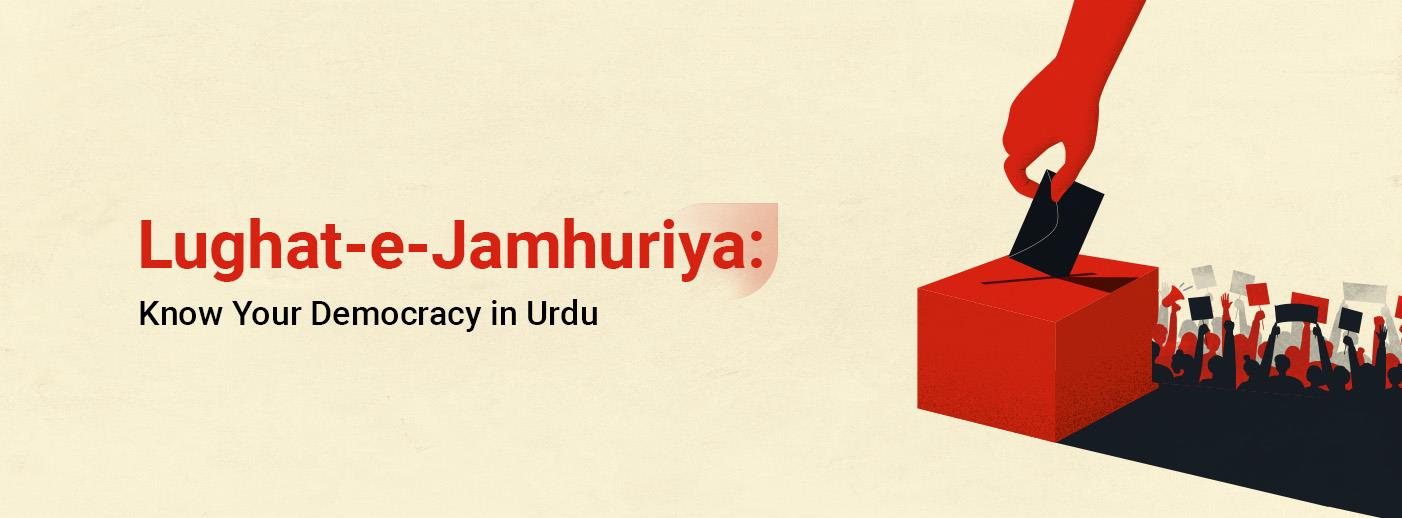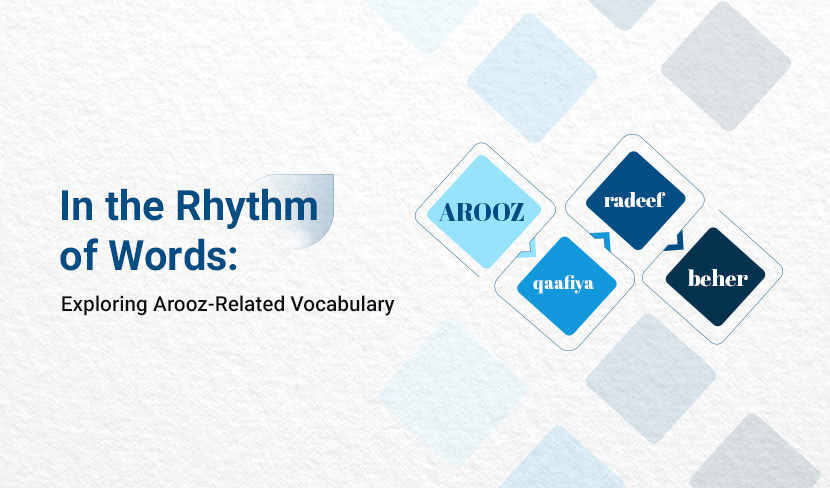अधिक खोजे गए शब्द
सहेजे गए शब्द
खिस्यानी बिल्ली खम्बा नोचे
जिसे क्रोध आ रहा हो वह अपनी खीझ या क्रोध दूसरों पर उतारता है, लाचारी में आदमी दूसरों पर क्रोध करता है, लज्जित व्यक्ति दूसरों पर अपनी लज्जा उतारता है, निर्बल की खीझ
कोशिश
कोई काम करने के लिए विशेष रूप से किया जानेवाला प्रयत्न, मेहनत, दौड़ धूप, प्रयत्न, प्रयास, चेष्टा, उद्योग, श्रम, उद्यम, उपाय, परिश्रम
आठ बार नौ त्योहार
सुख-सुविधा और आराम का शौक़ या लगन ऐसा बढ़ा हुआ है कि युग और समय उसको अल्प व्यय नहीं करने देता
चमनिस्तान
ऐसा बाग़ जहाँ फूल ही फूल हों, ऐसी जगह जहाँ दूर तक फूल ही फूल और हरा भरा नज़र आए, वाटिका, चमन, बाग़
दादरा
संगीत में एक प्रकार का चलता गाना (पक्के या शास्त्रीय गानों से भिन्न), एक प्रकार का गान, एक ताल
Lughat-e- Jamhuriya: Know Your Democracy in Urdu

The wave of elections has coloured all of our nation in shades of political awareness and knowledge. It is crucial for us, as responsible citizens to understand the importance of democracy and exercise our right to vote.
And in the same spirit, today, we are here to take you on this political rally of Urdu words. In this blog, you will be introduced to the Urdu vocabulary of all things related to democracy. So, let us set on this expedition, so that the next time you discuss politics, you may have an elegant Urdu vocabulary to flaunt!
First up is our key word jamhuuriyat, which we call democracy in English. Having origins in Arabic, the word jamhuuriyat stems from the root word jamhuur, which literally means a heap of sand. But, its metaphorical meaning refers to a a great number of people, a collective body (of men), a whole people or a republic.
Then we have the word aaeen, which means constitution, law or a set of rules. Aaieen is a Persian word and is also used in the sense of a religious law, jurisprudence and politeness, civility or formality etc. However, its most popular usage in Urdu is in the context of the constitution (of a nation).
The aaieen gives you all your constitutional rights, one of which is your right to vote, which is called Haq-e-raay-daahi in Urdu.
One of the most important words related to democracy is intikhaab, which literally means selection. When used in a political context, intikhaab refers to the act of electing a representative, through the process of voting.
After the elections are over and the votes are counted, the results declare the party which has won and formed a government. This party is called Hizb-e-iqtidaar, which translates to the ruling party. Hizb is Arabic in origin and refers to a group of people. Iqtidar on the other hand means authority, power, might or ability.
But what is a ruling party, without a party opposing it? A party, which is in opposition to the ruling one, is called Hizb-e-Ikhtilaaf. Ikhtilaaf, also Arabic in origin, means difference, disagreement or opposition.
And with this, we warp it up for the key words related to democracy, which may come in handy in the forthcoming elections. Remember, it's not just about knowing the words; it's about using them to vote and shape the destiny of our nation. Now go forth, armed with knowledge and wit, and let democracy reign supreme!
Delete 44 saved words?
क्या आप वास्तव में इन प्रविष्टियों को हटा रहे हैं? इन्हें पुन: पूर्ववत् करना संभव नहीं होगा





